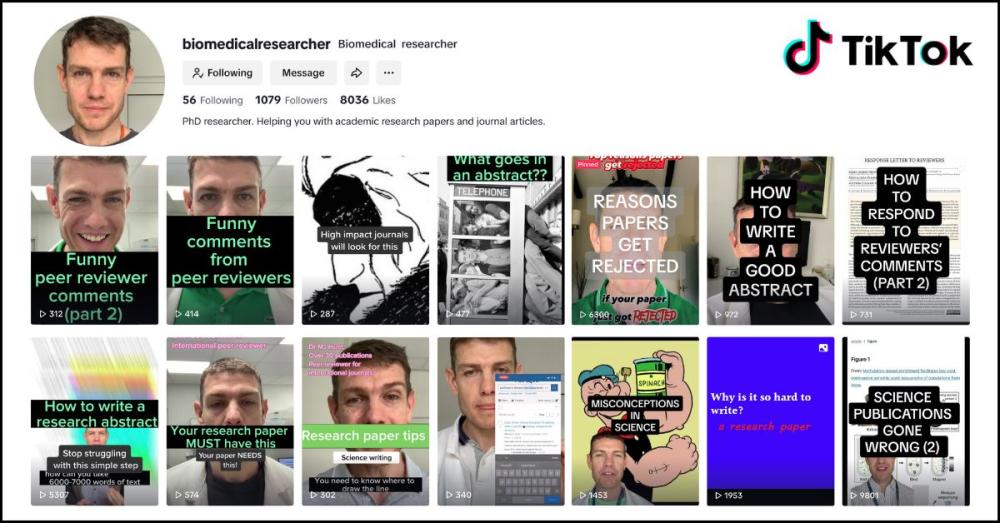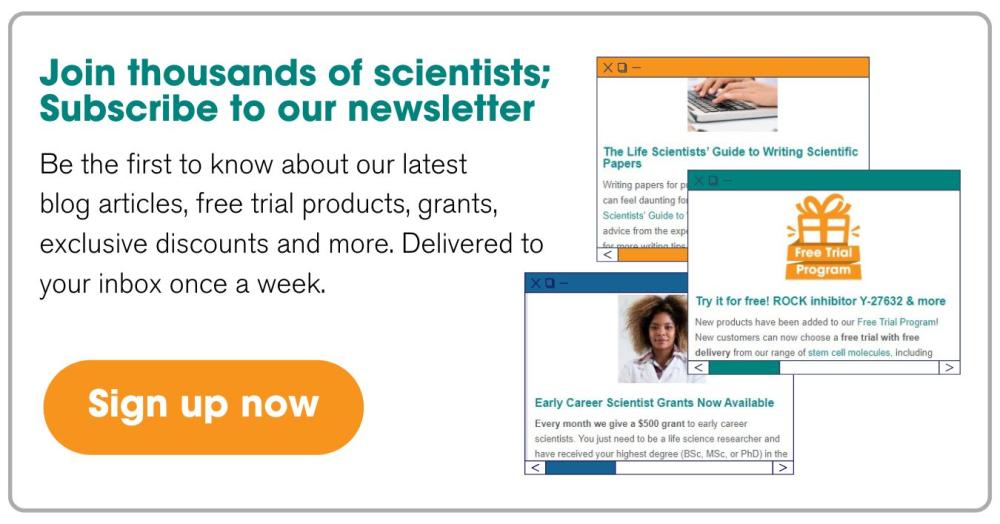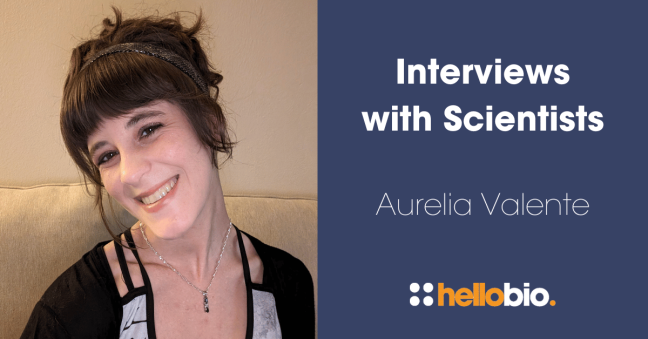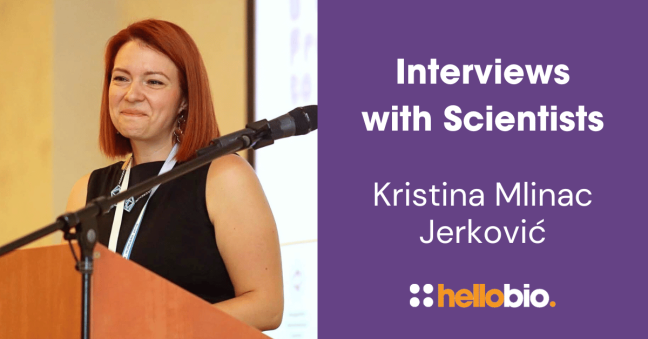Interviews with Scientists: Mark Hunt
We’re pleased to bring you another installment of our Interviews with Scientists series, and this week we spoke to Mark Hunt of the Nencki Institute of Experimental Biology in Warsaw, Poland.
Mark is an Assistant Professor who began his studies at King’s College London before completing a PhD in Pharmacology at the University of Cambridge. He then completed postdoc positions at labs in France and at the University of York, before moving to Poland to take up his current role in the Laboratory of Neuroinformatics. As well as his scientific research work, he is also the co-founder of two businesses that offer academic proofreading and medical translation services. In addition, he runs a TikTok account which he uses to share writing tips and advice for scientists.
We were keen to find out more about his many pursuits, and in this great interview he told all about his early interest in medicine, his research work into the effects of ketamine on the brain, and his advice for using social media for effective science communication!
Hi Mark! Please can you tell us about your current role at the Nencki Institute of Experimental Biology?
I am based at the Laboratory of Neuroinformatics in Poland, where I lead a group (1 masters student, 2 PhD students, 1 postdoc) researching how ketamine affects brain activity. We record electrical activity in the brain of rats to try and understand how ketamine produces its effects and what brain networks this drug influences.
What was the focus of your PhD research?
My PhD in Cambridge, UK, was focused on characterizing the behavioural changes in the first transgenic mouse model of Huntington’s disease. It involved learning how to carry out a lot of different behavioural tests, both motor and cognitive, and we identified impairments which deteriorated with age.
Did you always want to work in science when you were younger, and if so why?
I enjoyed messing around as a kid, and got a microscope around 8 years old. I always found drugs/medicines interesting and enjoyed learning about how they work. So, yes, I thought I would end up doing experiments and science in some capacity.
What excites you most about the work that you do?
I am fascinated about my research, discovering new things about the brain and how it works. In particular, I work on a fast brain rhythm produced by ketamine, and the thought that you can design experiments, and then carry them out and discover something new is very exciting.
You run a popular TikTok channel offering advice on academic writing and getting published. What motivated you to start using social media for science communication?
Thanks for saying it's popular! It's quite small. The main reason I started was because I wanted to share with other people (mainly students) some basic things and tricks I’ve learned about science writing. I wanted to share it, as other people might find it helpful. Doing social media was a massive step outside of my comfort zone as it isn’t really my thing or my generation, but after a while it does get quite addictive!
What advice would you give to a life scientist who wants to use social media to communicate their research?
This advice is the same thing I keep telling myself, try to be consistent with posting. Research is exciting and a lot of interesting things happen each day, so take what you have learned or found interesting and share it with people. It can be really hard to find time to post, stay motivated, deal with low views, etc. You need a lot of internal motivation, at least at the start. So if you are just starting out, keep going for at least 6 months.
You are also the co-founder of two businesses that offer academic proofreading and translation services. How did these businesses come about?
That’s a funny one! I finished my PhD in the UK, then moved to France, and being the “English” speaker was asked to check texts (a lot). I met my future wife, we moved to Poland and was asked again to check texts (a lot). I often didn’t have time to write my own papers as I was so busy checking other people’s! So my wife (the business one) suggested we start a business to offer proofreading/editing for academics called eCORRECTOR. The second business, MD Online, was an offshoot, as we were then asked to translate texts, and then it got bigger and we continue to provide translations and language assistance in all European languages.
You are clearly passionate about supporting scientists with their academic writing. Why is this topic so important to you?
When I moved to Poland about 15 years ago, there were a lot of scientists doing good work, but rarely targeting higher tier journals, and this was partly because of language issues. So I wanted to help break down language barriers so that their results would speak for themselves without the disadvantage of not being a native speaker of English.
What's the most valuable piece of career advice you’ve ever been given?
I know it’s a cliché, but “think outside of the box”. It’s what Professor Miles Whittington said, and it’s the only way paradigm shifts happen, otherwise you end up recycling old ideas without making real advances. It’s a really hard thing to do though.
How do you see your career progressing in the future/where do you see yourself in 10 years?
One thing I really like about research is that it's possible to combine it with other activities, such as business. I hope to continue developing my line of research, I have a few ideas, and get funding to see those projects out. For business, my wife and I are about to start another new business venture so we will see where that takes us!
Outside of your career, what do you enjoy doing most? (e.g. hobbies, passion projects, etc.)
I recently joined a gym and really enjoy going there – it’s a really good start to the day! I also like running and playing chess.
_________________________________________________
Thanks for a great interview Mark! We wish you the best of luck with your future research and new business ventures!
Connect with Mark:
-
LinkedIn: Mark Hunt
-
TikTok: @biomedicalresearcher
-
Lab website: http://neuroinflab.wordpress.com/
-
eCORRECTOR: https://ecorrector.com/
-
MD Online: https://md-online.pl/en/
_________________________________________________
If you enjoyed this article, why not check out the other resources available on our blog. We are passionate about supporting life scientists including early career life scientists and PhD students - with really low-priced reagents, antibodies and biochemicals, early career scientist grants, and resources to help with both personal and professional development. We know how tough it is - so we hope you find these helpful!
More General Support for Life Scientists
For advice on wellbeing, dissertations, presenting at conferences, wellbeing, PhD support, networking and lots more, we have a huge range of articles to help - just click below:
Save up to 50% on our high purity reagents...
When you get to the stage of planning your experiments, don't forget that we offer a range of low-cost, high-purity agonists, antagonists, inhibitors, activators, antibodies and fluorescent tools (yes - they really are around half the price of other suppliers!) You can use our Quick Multi-Search Tool to search for lots of products in one go, and the range includes:
- Enzyme inhibitors and activators
- Chemogenetic ligands
- Ion channel modulators
- GPCR & ionotropic receptor ligands
- Cell biology reagents & biochemicals
Technical resources
Try our Molarity Calculator: a quick and easy way to calculate the mass, volume or concentration required for making a solution.
Try our Dilution Calculator: an easy way to work out how to dilute stock solutions of known concentrations
We also offer a comprehensive range of technical resources including antibody protocols and methods, product guides and mini-reviews:
And finally, don't forget to check back in with our blog regularly for our latest articles. If there’s something you’d love to contribute to the community, whether that’s an interview or article, drop us a line at hello@hellobio.com
---
























